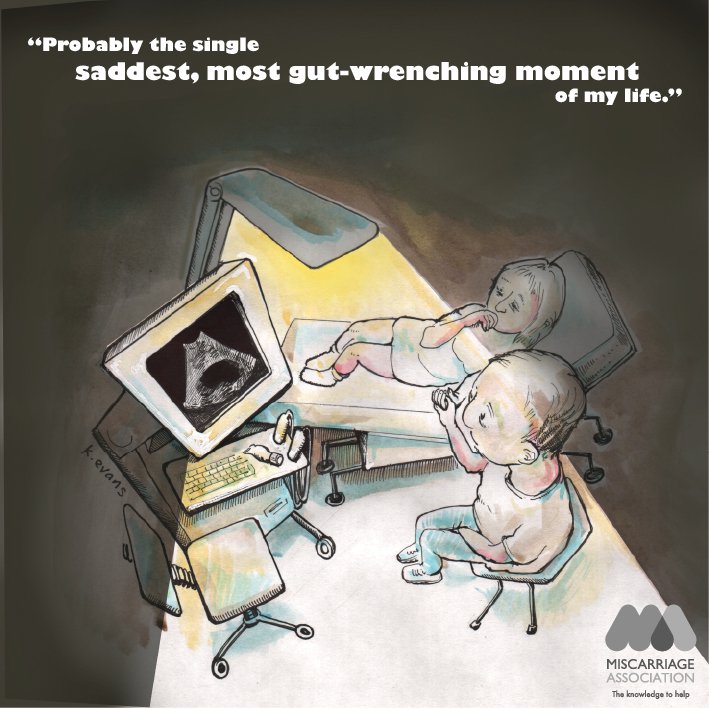The Miscarriage Association, working with University College London, asked 186 partners of women who had miscarried to 'tell their story' of pregnancy loss through written testimonies and a survey. During and after miscarriage partners reported emotions such as sadness (85%), grief (63%) and shock (58%). 58% said they struggled to concentrate, 47% reported sleep problems, and 48% said it affected their work. However, 46% of partners didn’t share all of how they were feeling with their wife or girlfriend for fear of saying the wrong thing or causing her further distress. 22% didn’t talk about any feelings of loss and pain with their partner. Most described having to 'be strong for her' and said they felt invisible, ignored and sidelined during and after miscarriage – and unable to talk about their own feelings of loss and pain with their wife or girlfriend, friends or family members, or healthcare providers.
Rather than this being a 'women-only' issue, evidence from this research and other studies indicate that partners may be as affected emotionally by miscarriage as their wives or girlfriends. However as partners are often assumed not to be so upset and as healthcare in this area has traditionally focused on miscarriage as a physical problem, the grief and trauma associated with miscarriage may be overlooked. As may be the diverse needs of lesbian, bi and Trans* partners, young parents and those who have used assisted conception. Partners are often bystanders to their wife or girlfriend's physical care and the trauma associated with this can also result in poor mental health for partners and difficulties within relationships.
Using the stories from partners and their answers on the survey The Miscarriage Association created a range of materials to help partners, women who have miscarried, and healthcare providers. All are free/open access and can be used to raise awareness, underpin teaching, give support or direct to other sources of care.
These include:
- an updated leaflet called Partners Too which explains what happens during miscarriage, how partners might feel, ways they can cope and how they can best support their wife or girlfriend http://www.miscarriageassociation.org.uk/wp/wp-content/leaflets/Partners-Too.pdf
- a collection of short films where actors tell the stories of partners describing different kinds of pregnancy loss and diverse relationships http://www.miscarriageassociation.org.uk/support/feelings-after-pregnancy-loss/support-for-partners/video-clips/
- a selection of stories written by partners, describing their miscarriage experiences http://www.miscarriageassociation.org.uk/support/feelings-after-pregnancy-loss/support-for-partners/stories/
- a series of cartoons by artist Kate Evans depicting common feelings of partners during and after miscarriage http://www.miscarriageassociation.org.uk/support/feelings-after-pregnancy-loss/support-for-partners/cartoons/
While a complete description of all stages of the work can be found here for those interested in doing research/teaching/evidence based practice http://theresearchcompanion.com/partners-too-how-to-make-a-public-awareness-campaign/

